Apple, Google and Amazon are said to be chasing second acts - will their efforts to evolve succeed?
Rumours abound that Apple is moving into cars, while Google is searching for profit streams that don't involve ads and Amazon is selling itself as more than a store. Kevin Maney reports
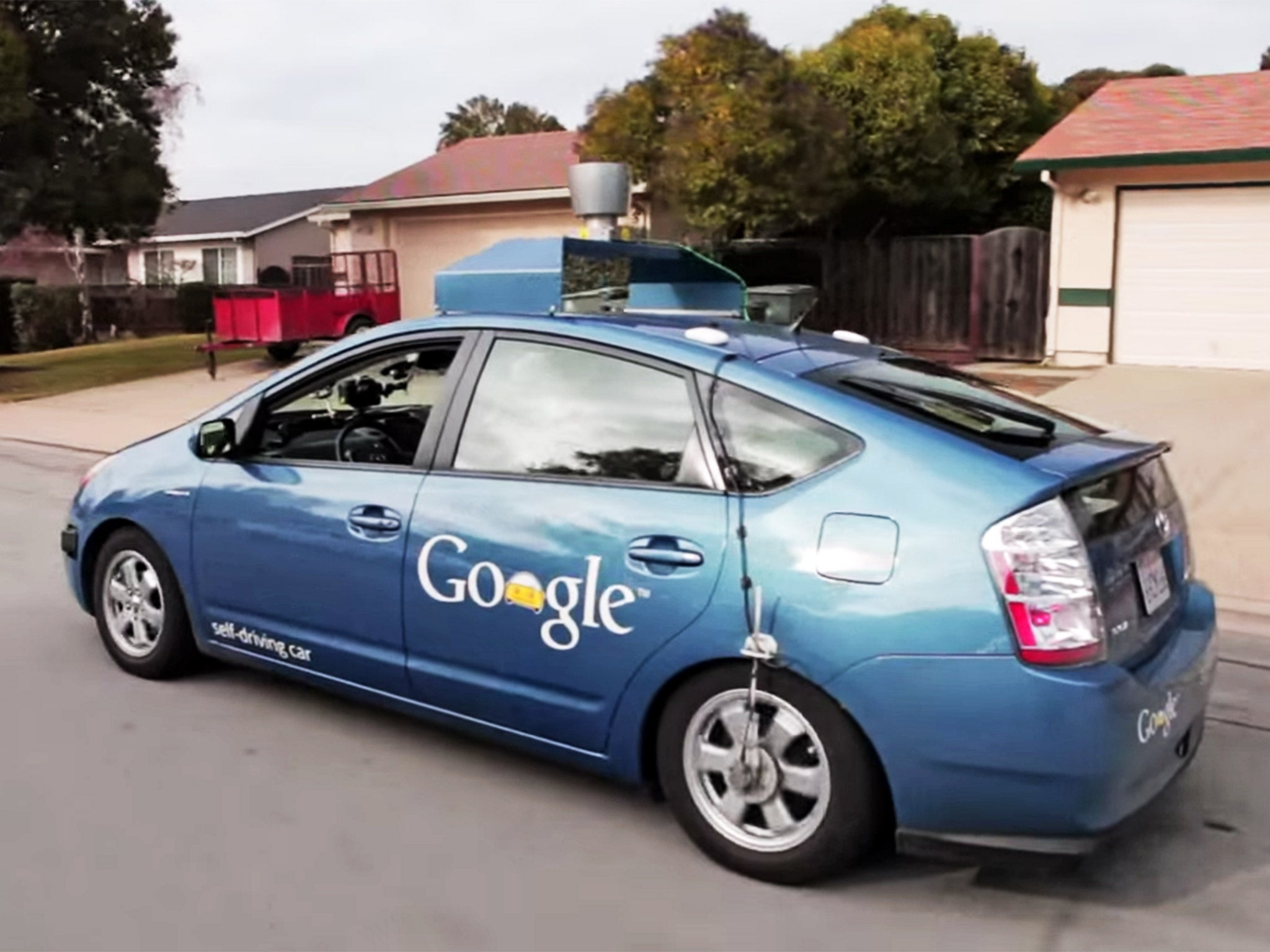
Your support helps us to tell the story
From reproductive rights to climate change to Big Tech, The Independent is on the ground when the story is developing. Whether it's investigating the financials of Elon Musk's pro-Trump PAC or producing our latest documentary, 'The A Word', which shines a light on the American women fighting for reproductive rights, we know how important it is to parse out the facts from the messaging.
At such a critical moment in US history, we need reporters on the ground. Your donation allows us to keep sending journalists to speak to both sides of the story.
The Independent is trusted by Americans across the entire political spectrum. And unlike many other quality news outlets, we choose not to lock Americans out of our reporting and analysis with paywalls. We believe quality journalism should be available to everyone, paid for by those who can afford it.
Your support makes all the difference.The joke going around is that Apple is moving into the automobile industry: Its engineers are working on a car without Windows.
A lot of today's great technology companies are chasing second acts. Rumours abound that Apple is buying Tesla and storming into cars (not to mention this week's speculation that it is to launch a television streaming service later this year). Google is throwing everything against the wall at Google X. Facebook placed a huge bet on WhatsApp. IBM is investing $1bn in its Watson computer.
The chances any of these will be gigantic successes? History says: good luck with that.
The problem is that every great technology story is pretty much a miracle. Fewer than one in 1,000 venture-capital funded start-ups go on to be worth $1bn or more. Of those, only a handful become $100bn tech superstars.
Explosive success relies on some crazy combination of the right people coming up with the right idea and executing it at precisely the right time – a triangulation that's as extraordinary as an Olympic gold medal decathlete changing genders.
And hitting the jackpot once is zero indication you can do it again. Over the past century, only a few big tech companies have radically reinvented themselves effectively – shifting from an original successful business model to an entirely new economic engine for a new era.
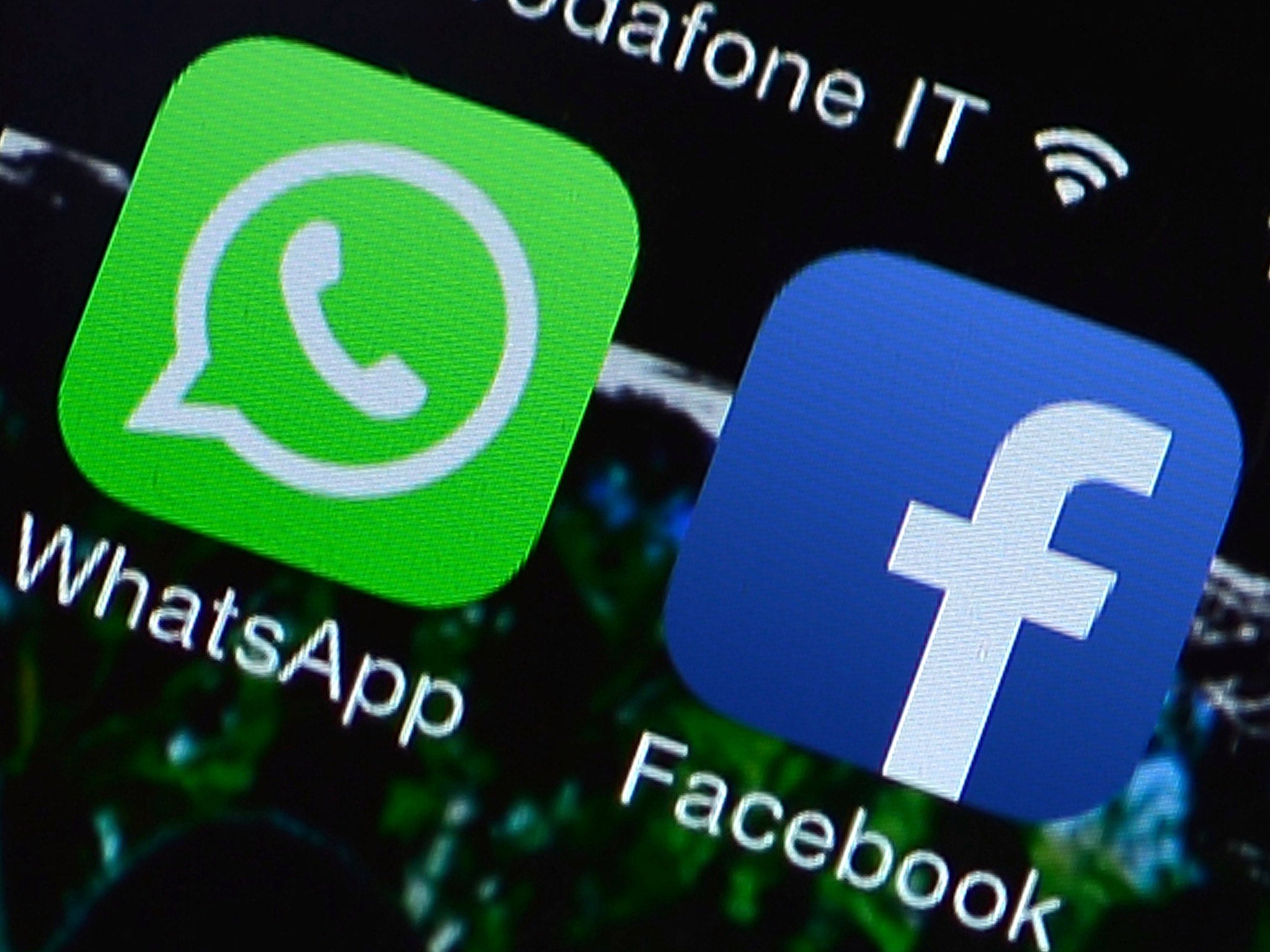
You can see Microsoft struggling with this now. From Zune to Bing to Windows Mobile, it has spectacularly failed to come up with anything to succeed its PC-era blockbuster, Windows. But now PCs running Windows are as mundane as cement, and Microsoft is as exciting as an old dog lying on a porch.
The only certainty in technology is that every fantastic ride ends. Every technology gets displaced by new technology. So big tech companies have to invest in experiments, striving for a subsequent hit that may never come.
Apple is the odd tech giant that has, in its past, remade itself – aided immensely by its near death in the 1990s. Much easier to take big risks when you're already face down in a pool of puke. In 2000, Apple was a minor personal computing company stuck at about 4 per cent market share and almost £3bn in annual revenue. In 2001, Steve Jobs introduced the iPod, starting Apple on its path into personal technology and media.
The iPhone, out in 2007, hit the accelerator, and now Apple is surfing atop a giant mobile-technology wave, the most valuable company on the planet. Mac computers – Apple's old centrepiece – barely matter.
But what's next? Apple doesn't really invest in research and development. There is no Apple lab where scientists are inventing the amazing gizmo that will change the world in 2025. But given Apple's size, it will need a huge next act. In that context, a move into cars seems like one of the few plausible ideas.
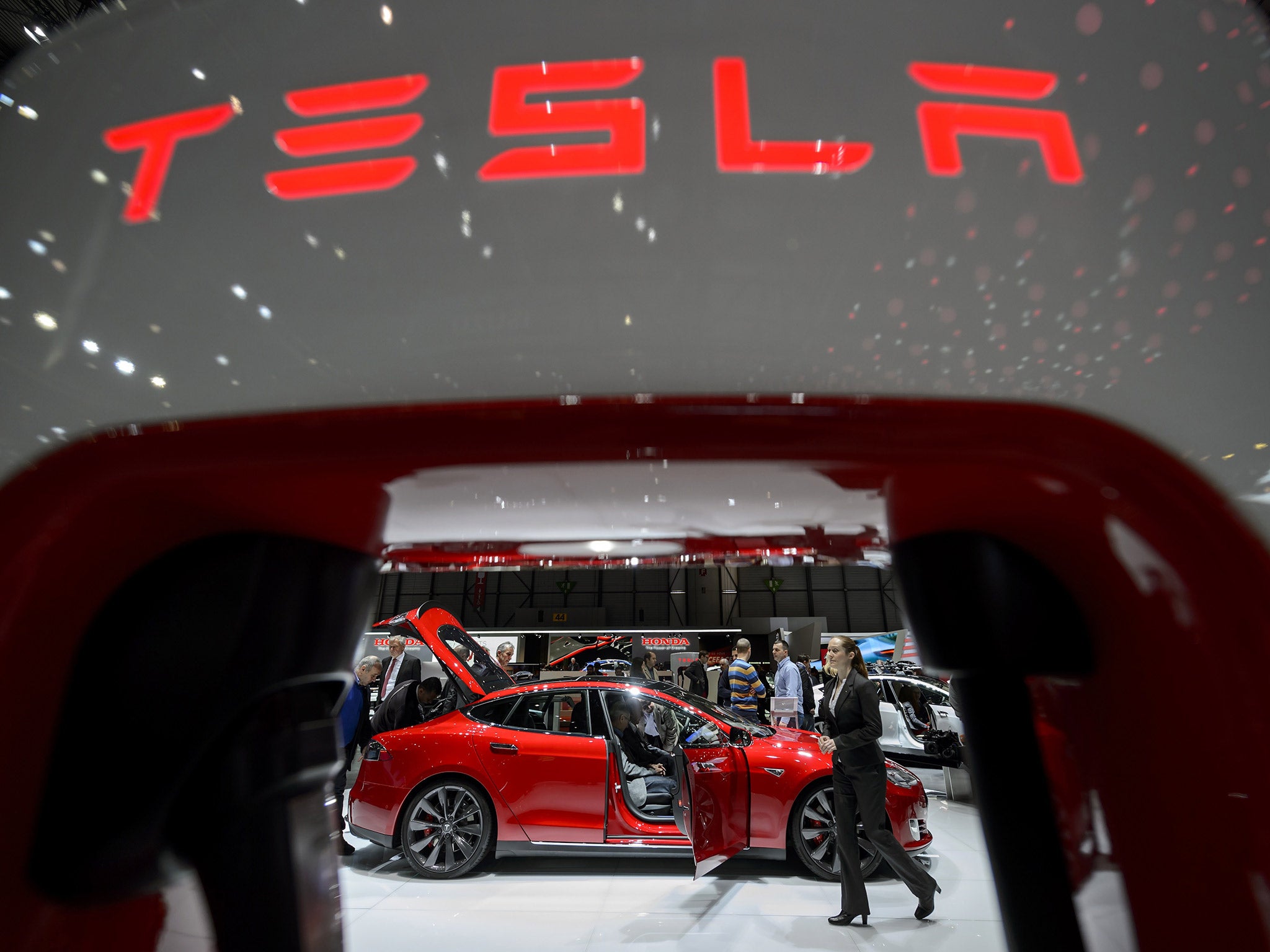
Apple has more than £120bn in cash. It could buy Tesla, worth around £17bn, as easily as most of us pick up the tab at Applebee's. The global auto industry is a £1 trillion annual market – four times the size of the smartphone industry. "The world's currently richest, most valuable technology company will meet one of [the world's] most disruptable businesses," says a report by Morgan Stanley, which seems to salivate at the prospect of making money out of whatever mess such a play would create. If Apple rethinks cars the way it rethought personal technology, Ford and Toyota will end up like Tower Records and Nokia, and Apple will make hundreds of billions of pounds on iCars.
Google will need a second act, too. Despite all the ways that Google infiltrates our lives–Gmail, Android, Chrome, YouTube – it gets 90 per cent of its revenue from search advertising. Google was born as a search company, and it's still a search company. For more than a decade, it has granted employees 20 per cent of their time to work on fresh ideas.
It funds Google X, a lab straight out of a James Bond film developing things such as driverless cars, robots and space balloons. All of it is fascinating, and entirely different from anything the company's done to date. IBM has been around for 104 years, reinventing itself a few times along the way. Now, stalled, it seems to need to do that again, and CEO Ginni Rometty is betting on the Jeopardy!-winning Watson system.
Last year, IBM said that it was investing $1bn to develop Watson. Although, compared to what Apple might spend on cars, $1bn actually seems tepid. For that matter, Facebook just spent $19bn on WhatsApp because Mark Zuckerberg was afraid his original laptop-centric service would get left behind in the mobile age. Even Facebook, at 10 years old, felt a need to get younger, fresher.
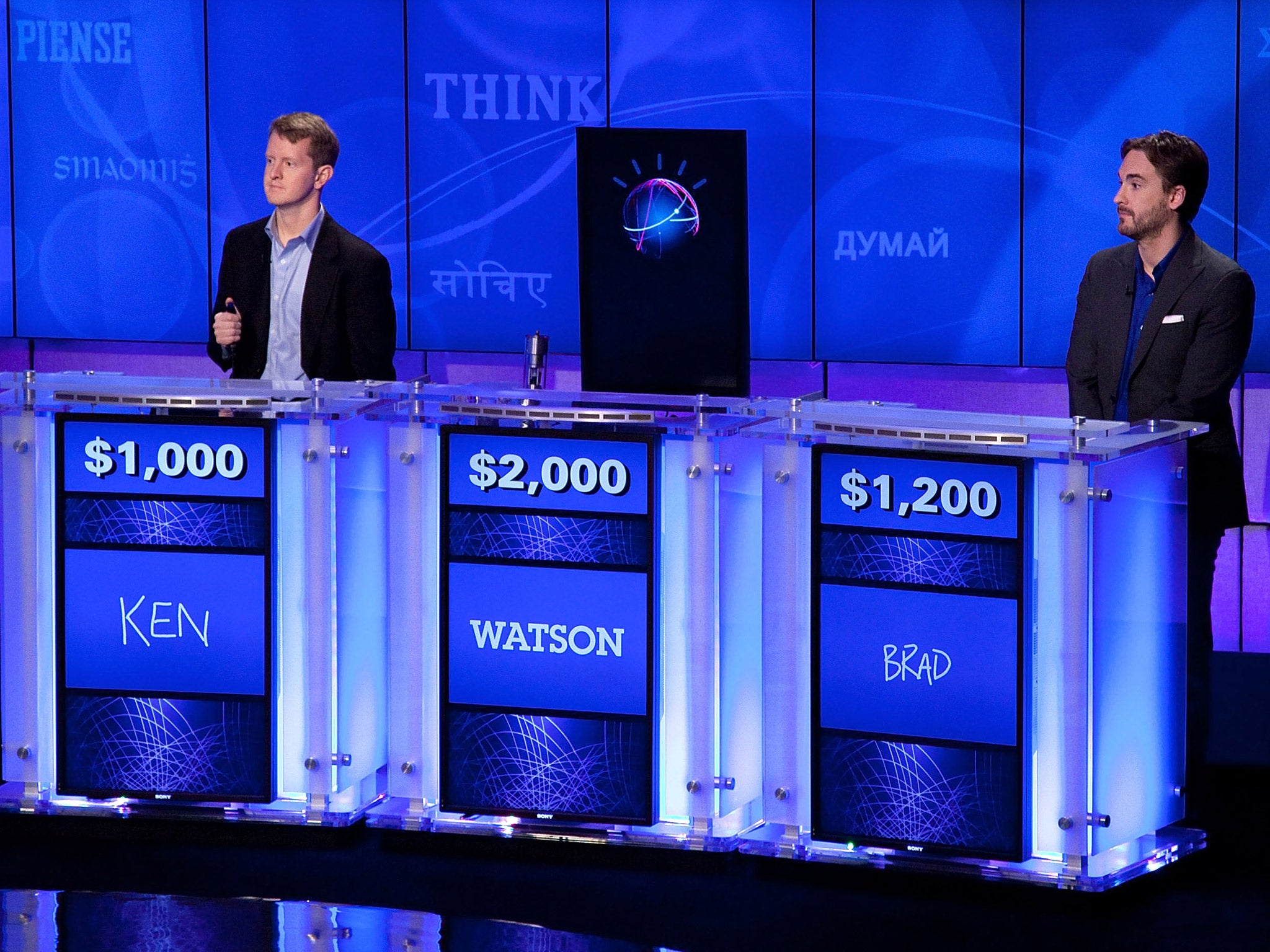
Perhaps the most remarkable reinvigoration of late belongs to Amazon. Online retailing is the company's heart and soul. In 2006, the company launched Amazon Web Services, based on the idea it could rent out some of the computing capabilities it already developed to use inside Amazon. Now AWS is a £1.7bn business and has altered Amazon's image from retailer to tech pioneer. It's not exactly a second act, yet, but it's a strong subplot.
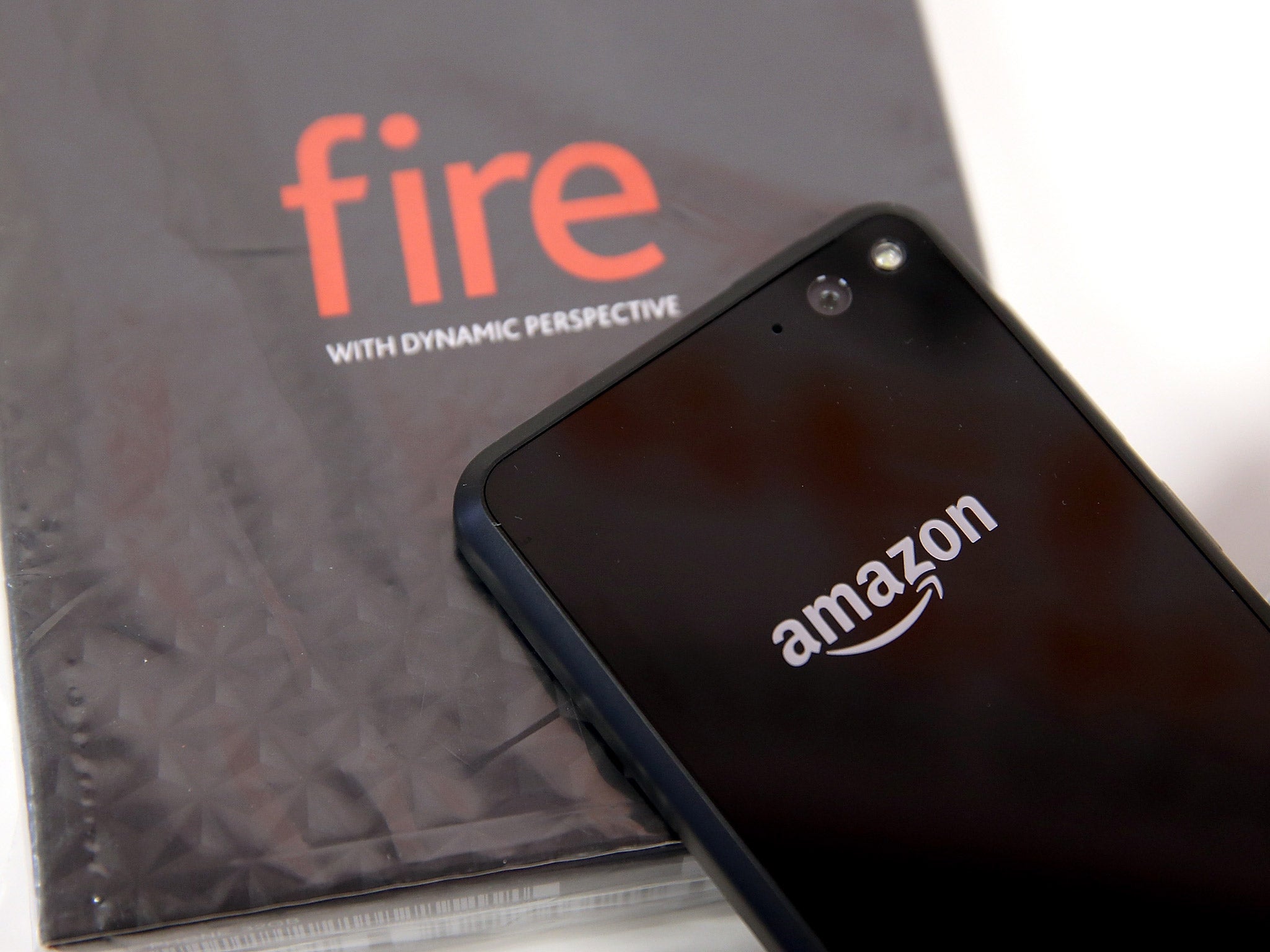
Asked about AWS and other Amazon try-outs, including the maligned Fire phone, CEO Jeff Bezos has said that there's no option but to seek the next big business. "We've made billions of dollars worth of failures at Amazon," he remarked recently. "But companies that don't invest in new things and embrace failure end up with a Hail Mary at the end of their run" – the prayer being an American football term for a hopelessly long-shot pass.
If Apple does buy Tesla and get into cars while the iPhone is still a scorching business, it will be an act of corporate bravery worthy of Steve Jobs. The company will be accepting failure as an option now, instead of as a certainty later.
Oh, and it's a given that the charger for an iCar won't work with any other brand.
© 2015 IBT Media Inc.
Join our commenting forum
Join thought-provoking conversations, follow other Independent readers and see their replies
Comments